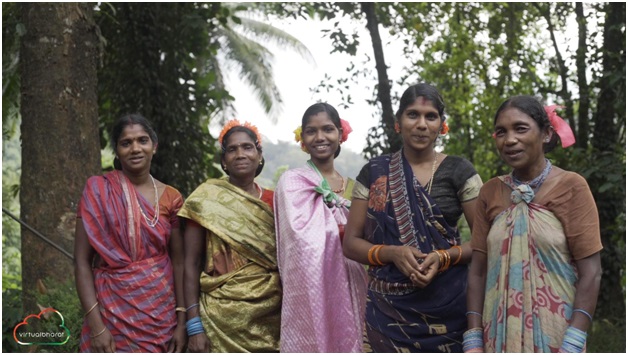Forest Department Relies on Muthuvan Tribe's Indigenous Knowledge for Nilgiri Tahr Conservation (The Hindu)

- 17 Oct 2023
Why in the News?
Members of the Muthuvan tribe of the Anamalai hills, who are known for coexisting with the wildlife with their traditional knowledge, have joined hands with the Tamil Nadu Forest Department for a unique task.
About the Muthuvan Tribe:
- Inhabiting the border hill forests of Kerala and Tamil Nadu, the Muthuvan tribe is distributed across this region.
- The tribe communicates in distinct dialects, identifying themselves as Malayalam Muthuvan and Pandi Muthuvan.
- Cultural Beliefs: Embracing animism and spirit worship, the Muthuvan tribe venerates forest gods and attributes the spirits of their ancestors as the initial settlers in the hill forests.
- Renowned for their harmonious coexistence with wildlife, the Muthuvan people leverage traditional knowledge to navigate their relationship with the natural environment.
- Unique Governance System - 'Kani System': Operating under the 'Kani System,' each village is overseen by a 'Kani' responsible for village administration, reflecting their distinctive form of governance.
- Traditional Medicine Expertise: Proficient in traditional medicines, the Muthuvan tribe safeguards their effective remedies, preserving and passing down this knowledge across generations.
- Occupation: Agriculture serves as the primary occupation for Muthuvan tribes, yielding various products such as ragi, cardamom, and lemongrass.
About Project Tahr:
- Project Tahr aims to enhance comprehension of the Nilgiri Tahr population through surveys and radio telemetry studies.
- The initiative focuses on reintroducing Tahrs to their historical habitat, fostering their return to natural landscapes.
- Addressing immediate threats, the project employs strategic measures to mitigate challenges facing the Nilgiri Tahr.
- A key component involves intensifying public awareness efforts to garner support and understanding for the conservation of this species.
- Project Tahr is slated for a comprehensive 5-year implementation, spanning from 2022 to 2027.
